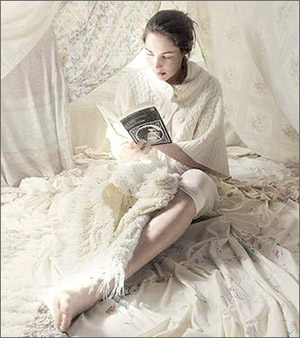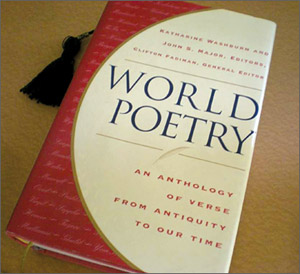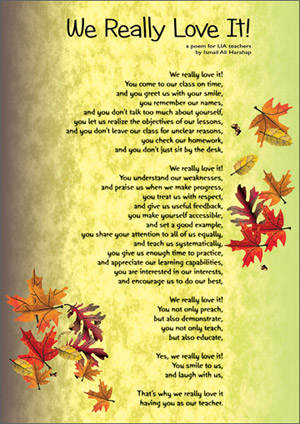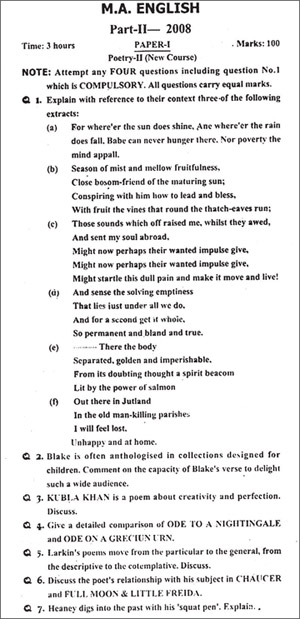Enjoying poetry
K S SIVAKUMARAN

Enjoying a poem makes the mind relaxed |

A poetry book |
When I was a young student we had the opportunity to study a
collection of poems from a book titled 'Poetry for Pleasure'. But in
later years we realized that poetry is not for pleasure alone- meaning
deriving emotional pleasure, but poetry could also be a vehicle for
transferring new thoughts that could help to move away from worn-out
fixed views and be a catalyst for positive changes. Most contemporary
poetry in many languages all over the world is an amalgam of beautiful
thoughts and refined or sublime emotions.
At the same time modern poetry is not easy to understand at first
reading, because such poetry is written in complex social situations. As
such, we have to understand many things by our own search for multi
dimensional knowledge about life and nature and society. In other words
we need to have a thorough background knowledge of everything under the
sun. We need to know our past and myths and great literature of the
world too. It is because allusions are aplenty in modern poetry. We have
to understand the lines in modern poetry in a wide variety of social and
cultural contexts.
In this background let us try to learn a few approaches to understand
modern poetry from the public examinations requirements. Here are a few
hints for young people to appreciate poetry as required.

A poem

Questions based on a poem at an examination paper |
In analyzing a given poem, we should know first what the poem is
about? This would be followed by answering such questions as who the
speaker in the poem is, the way the poem is written, why the poem makes
an impact on us, and anything else we think is important in the poem.
Before answering we must first read through the poem slowly at least
twice. If we are not in a position to read aloud, we must try to hear
the poem in our head. Then we must read through the questions and
understand what is specifically asked. Most students skip other parts in
the question by not reading the questions fully. Then we should go back
to the poem and underline words and phrases relevant to each question.
Then we should write our answer in at least in five paragraphs, one for
each heading.
Very often the examiners ask about the effective use of language in
the poem. In considering the writing of a poem we should also take into
consideration such aspects like rhyme, rhythm, and comparisons. Perhaps
what is important now is the imagery. Besides, the choice of words,
feeling and moods contribute to the effectiveness of the poem.
What are meant by imagery are simply simile, metaphor,
personification, alliteration, hyperbole and oxymoron. Personally I
would not spend much time on these aspects since what the poem says, and
how it says, and whether it succeeds in communicating what the poet
wanted to say are more important.
However sound in the poem helps us to connect with the poet.
Individual sounds and patterns of sound have the following functions,
critics say: To bring words together to emphasize a comparison or
contrast the meaning. Sounds support meaning. When we speak, some
syllables of our words are stressed and some are not.
Poets use the natural stress of words to give rhythm sometimes but
not always in a regular metre. Variations in the metre are often
connected with meaning or mood. Pauses at the end of lines, or in the
middle also affect the rhythm and pace of the verse.
What about rhyme? Examiners point out that the purpose of rhyme is to
give structure to the poet’s thoughts; to give prominence to important
words; to show connections between words, lines and ideas and to provide
humour.
Poets use comparisons to show the nature of their subjects, often in
ways we have not thought before. Here is an example: I love you like a
Pineapple.
Reading with understanding is often stressed by examiners. Most of us
just read any passage or poem carelessly without pauses that we miss the
meaning of the words and the poem itself in toto.
Diction, tone, association, double meanings or ambiguities, imagery
and response- these are key factors in understanding poetry.
Examiners explain that diction means the type of words a poet uses
gives the poem its character and tone. Tone is the voice of the poet-
the tone can change the throughout the poem. Association of particular
words, the further meaning or meanings words can conjure up. Ambiguity
sometimes gives poetry richness and complexity. Similes and metaphors
appeal to our different senses.
Finally this is important: Examiners are looking for a personal
response, which must be made on reason and not simply be a matter of
prejudice. It is your personal response that matters and it should be
substantiated.
[email protected] |



